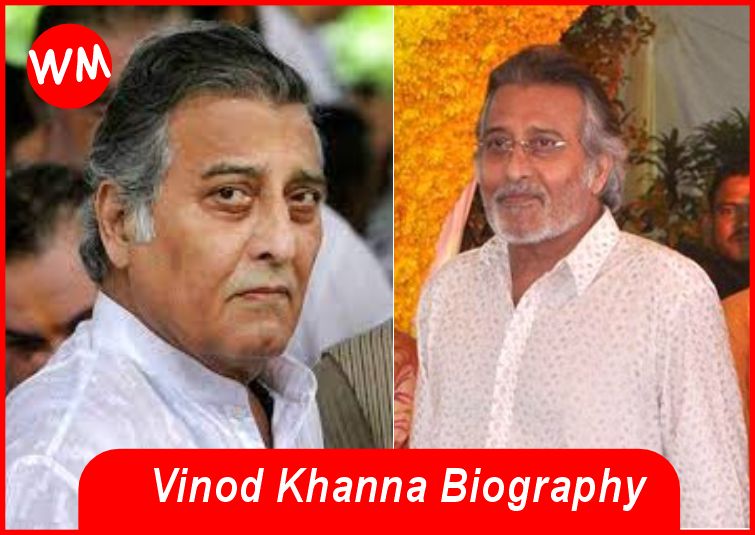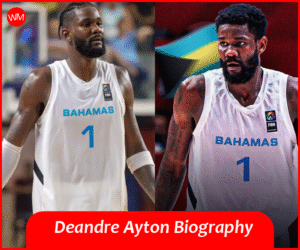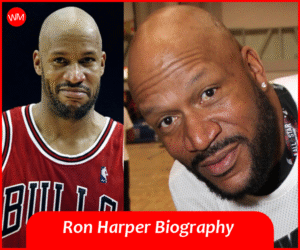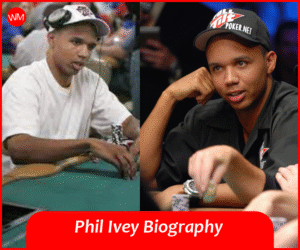
Vinod Khanna Biography – Explore the life and legacy of Vinod Khanna, one of Bollywood’s most iconic actors. Learn about his net worth, early life, family, movies, career achievements, and the impact he left on Indian cinema.
Vinod Khanna was a legendary Indian actor, producer, and politician known for his powerful screen presence and versatile performances. He was one of the most celebrated stars of Bollywood in the 1970s and 1980s, starring in numerous blockbuster films. Apart from his acting career, he also ventured into politics, making a name for himself in both industries.
Vinod Khanna Biography: Profile Summary
| Field | Details |
|---|---|
| Name | Vinod Khanna |
| Profession | Actor, Politician |
| Nationality | Indian |
| Age at Death | 70 years (born October 6, 1946 – died April 27, 2017) |
| Education | Graduated from Sydenham College, Mumbai |
| Net Worth | $50 million at the time of his passing |
| Height | 5 feet 10 inches (178 cm) |
| Father | Kishanchand Khanna |
| Mother | Kamla Khanna |
| Sons | Akshaye Khanna, Rahul Khanna |
| Brother | Pramod Khanna |
| Marital Status | Married twice (Geetanjali Khanna, Kavita Khanna) |
| Years Active | 1968–2015 |
| Notable Awards | Filmfare Lifetime Achievement Award, BFJA Awards |
Important Facts
- One of Bollywood’s Biggest Stars: Vinod Khanna was a leading actor in the 1970s and 1980s, known for his action and romantic roles.
- Political Career: Served as a Member of Parliament (MP) and was part of the Bharatiya Janata Party (BJP).
- Spiritual Retreat: Took a break from acting in the 1980s to follow spiritual leader Osho Rajneesh.
- Successful Film Career: Worked in over 140 films, including classics like Amar Akbar Anthony and Muqaddar Ka Sikandar.
- Father of Actors: His sons, Akshaye Khanna and Rahul Khanna, followed in his footsteps in Bollywood.
Early Life, Childhood, and Education
Vinod Khanna was born on October 6, 1946, in Peshawar, then part of British India (now in Pakistan). He was born into a wealthy Punjabi business family. His father, K.L. Khanna, was a prominent industrialist. Following the Partition of India in 1947, his family migrated to Mumbai, India, like many others who were displaced during this turbulent period.
Khanna grew up in an environment of privilege but was also influenced by the socio-political upheaval of post-partition India. He was initially sent to a boarding school in Deolali, Maharashtra. Later, he continued his studies at St. Xavier’s High School, Fort, and subsequently at Delhi Public School (DPS), Mathura Road, in New Delhi.
Though his family encouraged him to pursue a more stable profession such as engineering, Vinod Khanna’s interest in films developed early. He was a passionate moviegoer, often skipping classes to catch matinee shows. He idolized Hollywood and Bollywood actors alike, and this cinematic fascination only grew stronger during his college years.
He later enrolled at Sydenham College in Mumbai, one of the city’s prestigious institutions, where he earned a degree in commerce. While at college, his exposure to theatre and film increased, and it was during this period that he decided to pursue acting professionally—against the wishes of his conservative father.
Film Career and Achievements
Vinod Khanna entered the Hindi film industry in 1968 with “Man Ka Meet”, directed by Sunil Dutt. Interestingly, he started his career playing villainous and supporting roles, which was rare for future leading men of the time.
He gained attention with his intense performances in early films such as:
- “Purab Aur Paschim” (1970)
- “The Burning Train” (1980)
- “Rakhwala” (1971)
However, it was with films like “Mere Apne” (1971) and “Achanak” (1973)—based loosely on the real-life Nanavati case—that critics began to recognize his emotional depth and screen presence.
Khanna became a full-fledged star in the mid to late 1970s with blockbuster hits such as:
- “Amar Akbar Anthony” (1977) – where he played Amar, one of three brothers separated in childhood.
- “Muqaddar Ka Sikandar” (1978) – opposite Amitabh Bachchan.
- “Qurbani” (1980) – a major hit that blended action and music.
- “Dayavan” (1988) – a remake of the Tamil film Nayakan, where he played an underworld don with emotional complexity.
Khanna’s charisma, deep voice, and stoic screen presence earned him comparisons with actors like Gregory Peck and Clint Eastwood. He was admired for seamlessly transitioning between romantic leads, action heroes, and introspective roles.
Temporary Withdrawal from Cinema
In a move that shocked fans, Khanna took a sabbatical from acting in 1982, at the height of his fame, to become a disciple of the controversial spiritual leader Osho Rajneesh (Bhagwan Shree Rajneesh). He moved to the Osho Ashram in Oregon, USA, and took up the name Swami Vinod Bharti, immersing himself in spiritual practice for nearly five years.
He returned to the film industry in the late 1980s, re-establishing himself with mature and layered roles. His comeback was marked by commercial and critical success.
Songs and Music Contributions
While Vinod Khanna was not a playback singer himself, his films featured some of the most memorable and iconic songs in Bollywood history. These tracks remain popular to this day and are closely associated with his on-screen persona:
- “Hum Tumhe Chahte Hain Aise” – Qurbani (1980): A romantic duet sung by Lata Mangeshkar and Kishore Kumar, featuring Khanna and Zeenat Aman.
- “Laila O Laila” – Qurbani (1980): A chartbuster dance number picturized on Khanna and Amjad Khan, alongside the electrifying performance by actress Helen.
- “Ruk Jaa O Dil Deewane” – Though popularly associated with Bachna Ae Haseeno (2008), the original style of such romantic charm in Bollywood was set by actors like Khanna in the 70s and 80s.
Khanna’s ability to express a wide range of emotions helped elevate the musical experience of his films, making him a favorite of music composers and directors.
Political Career
In the late 1990s, Vinod Khanna transitioned into politics by joining the Bharatiya Janata Party (BJP). He was elected to the Lok Sabha (lower house of Indian Parliament) from the Gurdaspur constituency in Punjab in 1998.
He was re-elected multiple times (1999, 2004, and 2014), serving four terms in Parliament.
Ministerial Positions:
- Served as Union Minister for Culture and Tourism in 2002.
- Later became the Minister of State for External Affairs, working under Prime Minister Atal Bihari Vajpayee.
Khanna was known for his soft-spoken demeanor, strong grassroots support, and dedication to his constituency, balancing his political career with occasional film roles until the mid-2000s.
Family and Personal Life
Vinod Khanna married Geetanjali Taleyarkhan in 1971, and the couple had two sons:
- Rahul Khanna – An actor known for more offbeat and international cinema.
- Akshaye Khanna – A successful mainstream Bollywood actor noted for his performances in films like Dil Chahta Hai, Border, and Section 375.
The couple divorced in 1985, reportedly due to Vinod’s deep spiritual involvement during his Osho years.
He later married Kavita Khanna, with whom he had two more children: a son, Sakshi, and a daughter, Shraddha.
Khanna was known for his reserved nature, spiritual pursuits, and loyalty to friends and family.
Death and Legacy
Vinod Khanna passed away on April 27, 2017, in Mumbai, after a prolonged battle with bladder cancer. He was 70 years old.
His death marked the end of an era, and tributes poured in from all corners of the Indian film industry and political world. Known for his grace, dignity, and magnetic screen presence, Khanna is widely regarded as one of the most iconic and respected actors in Indian cinema history.
Career Achievements and Awards
Vinod Khanna received several honors over the course of his multifaceted career:
- Filmfare Best Supporting Actor – Haath Ki Safai (1975)
- BFJA Award (Bengal Film Journalists’ Association) – Achanak (1973)
- Filmfare Lifetime Achievement Award – 1999, recognizing his enduring impact on Indian cinema.
- 🇮🇳 Padma Bhushan – Posthumously awarded in 2018, India’s third-highest civilian honor, acknowledging his contributions to both film and public service.
Conclusion
Vinod Khanna was more than just a film star—he was a man of many layers: a charismatic actor, a disciplined politician, and a seeker of spiritual truth. His life journey reflected his willingness to evolve and explore beyond conventional boundaries, from dazzling on-screen performances to meaningful public service and deep personal introspection.
Even years after his passing, he remains a revered icon in Indian cinema, and his films continue to inspire new generations of actors and fans alike.
FAQs About Vinod Khanna
1. What was Vinod Khanna’s net worth?
At the time of his passing, his estimated net worth was around $50 million.
2. How tall was Vinod Khanna?
He was 5 feet 10 inches (178 cm) tall.
3. Who are Vinod Khanna’s sons?
His sons are Akshaye Khanna and Rahul Khanna, both actors.
4. What were some of Vinod Khanna’s most famous movies?
Amar Akbar Anthony, Qurbani, Muqaddar Ka Sikandar, Dayavan, and Mere Apne.
5. What was the cause of Vinod Khanna’s death?
He passed away due to bladder cancer on April 27, 2017.
6. Did Vinod Khanna receive any national awards?
Yes, he was posthumously awarded the Padma Bhushan in 2018 for his contributions to Indian cinema.





